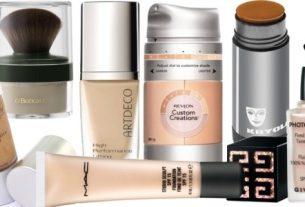Nutricosmetic is a term used by the cosmetic industry to designate products for oral administration, which are formulated and marketed specifically to improve the appearance of the silhouette, skin, hair and nails, but should not, however, replace a healthy and balanced diet.
These products can be administered in capsules or served in foods such as bars, juices or soups, for example, contributing to hydration, weight loss, delaying aging, tanning and reducing cellulite, for example.

What are worth for
Nutricosmetics can be used for the following purposes:
- Anti aging;
- Hydration;
- Antioxidant;
- Reduction of the impact caused by sun exposure;
- Improvement of skin tone;
- Reinforcement of skin immunity;
- Improves the appearance of nails and hair;
- Weight loss;
- Cellulite reduction;
- Increased shine and lubrication of the skin;
- Reduction of sagging.
Although it is not necessary to present a prescription to purchase a nutricosmetic, the person should speak to the doctor so that he or she can recommend which one is best suited to your needs.
Main ingredients of nutricosmetics
Some of the ingredients that can be found in nutricosmetics are:
1. Vitamins
Vitamins A and B complex contribute to the regeneration of skin and hair follicles. Furthermore, carotenoids such as lutein, zeaxanthin, beta-carotene and lycopene are precursors of vitamin A, and delay the signs of aging, contribute to strengthening the skin’s immunity and help protect it from the harmful effects caused by the sun.
Vitamin C is an antioxidant that fights free radicals and stimulates the synthesis of collagen, which is a protein that gives firmness and support to the skin, delaying its aging and helping to improve its structure.
Vitamin E helps stop hair loss and, in addition, works together with vitamin C to protect the skin against the harmful effects of exposure to UV rays, delays aging and strengthens the skin’s immune system.
Biotin, also known as vitamin H, contributes to the regeneration of weakened nails and hair and prevents hair loss. Furthermore, it also plays an important role in the metabolism of proteins and carbohydrates and is essential for the correct use of other B vitamins.
Vitamin B6, also known as pyridoxine, acts as a co-factor for cystine and as an anti-seborrheic agent.
2. Omegas
Omegas 3 and 6 are important for the skin because they are part of cell membranes, intercellular mechanisms and contribute to the inflammatory balance. Its consumption contributes to skin hydration, flexibility and barrier function.
Omega 3 also contributes to cell renewal and helps reduce inflammation caused by acne and psoriasis.
3. Trace elements
Selenium is very important for the proper functioning of glutathione peroxidase, which is an enzyme involved in protecting DNA against oxidative stress associated with UV rays. Its use is also associated with reduced risk of skin cancer and immune functions.
Zinc is a cofactor for many skin enzymes and plays a fundamental role in healing, immune reactions and also acts as an antioxidant, which fights free radicals.
Manganese stimulates the synthesis of hyaluronic acid and copper is an antioxidant and contributes to hair and skin pigmentation.
Chromium helps to enhance the function of insulin, which is responsible for distributing sugar in the body when food is consumed. Furthermore, it acts directly on the metabolism of fats, carbohydrates and proteins.
4. Proteins and peptides
Keratin is an important component of skin, hair and nails and is a protein that protects against external aggressions such as cold, hygiene products and injuries.
Collagen is also very important for the skin, being associated with hydration and increased fibroblasts.
Coenzyme Q10 is an antioxidant present within cells, which helps to inhibit the action of free radicals, which are molecules involved in aging.
5. Probiotics
Probiotics stimulate the immune system and are very important for skin hydration.
Names of nutricosmetics
There is currently a wide variety of supplements for skin, nails and hair on the market and, therefore, before choosing the most suitable product, you should speak to your doctor.
1. First
Nutricosmetics indicated for the skin improve skin density, thickness, roughness and flaking, provide more shine, firmness and hydration to the skin and prevent premature aging. Some examples are:
2. Hair and nails
Hair and nail supplements are indicated to prevent hair loss and stimulate the growth and strengthening of hair and nails:
3. Slimming and firming
Nutricosmetics indicated to reduce cellulite, remodel the silhouette and increase firmness, work by stimulating the metabolism of body fat. Some examples of supplements that help reduce weight and cellulite are:
4. Solar
Solar nutricosmetics are designed to protect the skin from the sun and stimulate and maintain a tan. Examples of products with this function are Inneov solar with lycopene and probiotics and Doriance and Oenobiol, for example, with lycopene, lutein, turmeric extract, zeaxanthin, astaxanthin, copper and antioxidants.
What precautions should you take?
Nutricosmetics should not be used by people who are hypersensitive to any of the components present in the formula, pregnant women or women who are breastfeeding.
These supplements should only be used after speaking with your doctor and the doses and times must be respected. It is important that the person knows that the results are not immediate, requiring a few months of treatment to begin to see the first effects.

Sign up for our newsletter and stay up to date with exclusive news
that can transform your routine!
Warning: Undefined array key "title" in /home/storelat/public_html/wp-content/plugins/link-whisper-premium/templates/frontend/related-posts.php on line 12
Warning: Undefined array key "title_tag" in /home/storelat/public_html/wp-content/plugins/link-whisper-premium/templates/frontend/related-posts.php on line 13




